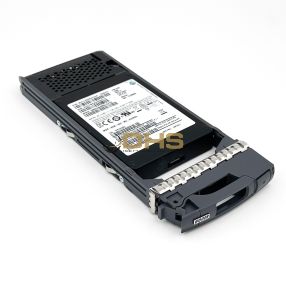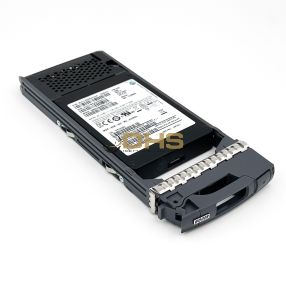-
-
-
-
- SSD
- HDD
- MEMORY
- SWITCH
- WIRELESS
- RACK SERVER
- BACKPLANE
- BATTERY
- BEZELS
- BLADE SERVER
- BLANK
- CABLE
- CADDY
- CONTROLLER
- CPU
- DVD/CD
- EXPANSION
- FAN
- FIREWALL
- GPU
- HBA
- HEAT SINK
- KVM SWITCH
- LIBRARY
- LICENSE
- NETWORK ADAPTER
- NETWORK MODULE
- PDU
- PSU
- RACK MOUNT KIT
- RAID CONTROLLER
- RISER CARD
- ROUTER
- SAN SWITCH
- SCREEN
- SOFTWARE
- SYSTEM
- SYSTEM BOARD
- TAPE
- TOWER SERVER
- TRANSCEIVER
- SERVICE
- PCI CARD
-
-
-
- HDD
- SSD
- MEMORY
- NETWORK ADAPTER
- PSU
- BACKPLANE
- BATTERY
- BEZELS
- BLADE SERVER
- BLANK
- CABLE
- CADDY
- CONTROLLER
- CPU
- DVD/CD
- EXPANSION
- FAN
- GPU
- HBA
- HEAT SINK
- KVM SWITCH
- LIBRARY
- LICENSE
- MOUSE
- NETWORK MODULE
- PDU
- RACK CABINET
- RACK MOUNT KIT
- RACK SERVER
- RAID CONTROLLER
- RISER CARD
- SERVICE
- SOFTWARE
- STACK MODULE
- SWITCH
- SYSTEM
- SYSTEM BOARD
- TAPE
- TOWER SERVER
- TRANSCEIVER
-
-
-
- HDD
- SSD
- MEMORY
- NETWORK ADAPTER
- PSU
- BACKPLANE
- BATTERY
- BEZELS
- BLADE SERVER
- BLANK
- CABLE
- CADDY
- CONTROLLER
- CPU
- DVD/CD
- EXPANSION
- FAN
- GPU
- HBA
- HEAT SINK
- KVM SWITCH
- LIBRARY
- LICENSE
- NETWORK MODULE
- PDU
- RACK CABINET
- RACK MOUNT KIT
- RACK SERVER
- RAID CONTROLLER
- RISER CARD
- SAN SWITCH
- SCREEN
- SOFTWARE
- SWITCH
- SYSTEM
- SYSTEM BOARD
- TAPE
- TRANSCEIVER
- SERVICE
-
-
-
-
-
-
-
-
-
-
-
-
-
-
-
-
Checkout using your account
This form is protected by reCAPTCHA - the Google Privacy Policy and Terms of Service apply.
Checkout as a new customer
Creating an account has many benefits:
- See order and shipping status
- Track order history
- Check out faster
NetApp SSD



Can’t find what you are looking for?
High-Performance Storage for Demanding Enterprise Workloads
Solid state drives (SSDs) have redefined enterprise storage performance, and NetApp SSDs are engineered to meet the rigorous demands of modern IT environments. Designed for high IOPS, low latency, and superior durability, these drives are ideal for workloads where speed and responsiveness are paramount. Whether powering virtual machines, supporting transactional databases, or accelerating cloud-integrated applications, NetApp SSDs offer the speed and reliability critical to data-driven operations.
For organizations seeking performance without compromise, SSDs deliver dramatic gains in application responsiveness and system efficiency. NetApp-compatible SSDs integrate seamlessly into existing arrays, enabling a high-performance tier that coexists with traditional spinning media.
Speed, Endurance, and Efficiency
The primary advantage of SSDs lies in their non-mechanical architecture. With no moving parts, they provide near-instantaneous access to stored data and consistent throughput – even under heavy load. This consistency supports performance-sensitive tasks like real-time analytics, large-scale virtualization, and low-latency storage for business-critical applications.
SSDs used in NetApp environments typically offer:
- Higher IOPS than HDDs for rapid access and reduced queue times
- Ultra-low latency for real-time operations
- Enhanced durability and wear resistance suited to write-intensive applications
These features are particularly impactful in hybrid configurations, where SSDs can be used as caching layers or high-speed tiers alongside capacity-focused NetApp HDD systems.
Seamless Integration with NetApp Architecture
NetApp SSDs are built to integrate tightly with controllers and storage software, offering full compatibility with ONTAP features such as inline deduplication, compression, and thin provisioning. This integration allows IT teams to maximize usable capacity while maintaining optimal performance and data integrity.
Whether used for primary storage or as a performance enhancement within a hybrid setup, SSDs work in concert with components like NetApp Controller modules to streamline data flow and improve I/O efficiency. Their small form factors also support dense deployments, helping organizations make the most of limited rack space.
Use Cases and Deployment Flexibility
SSDs are well-suited for a variety of use cases, including:
- Virtual desktop infrastructure (VDI) environments
- High-speed databases and ERP systems
- Artificial intelligence (AI) and machine learning workloads
- Real-time transaction processing
NetApp SSDs can be deployed flexibly within storage pools, as dedicated performance tiers, or as part of all-flash systems designed to eliminate performance variability. Their speed and reliability make them a go-to solution for organizations looking to eliminate latency as a limiting factor in workload performance.
Long-Term Value and Refurbished Options
While SSDs are more expensive per gigabyte than traditional drives, their ability to significantly boost system performance often translates into a lower total cost of ownership. By enabling faster application response times and improved system utilization, SSDs help reduce overhead across infrastructure layers.
Professionally refurbished SSDs offer an accessible entry point for organizations looking to upgrade performance without the full cost of new hardware. These drives are tested and certified to meet strict performance standards, providing a cost-effective way to modernize legacy systems or extend the lifespan of existing configurations.
To explore additional performance-focused solutions and expansion options, browse our full inventory in the NetApp category. With the right SSD strategy, your organization can unlock faster, smarter, and more efficient storage for every workload.
- Price:
- Actual Price:




